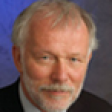Senior Advisor, Integrated Research System for Sustainability Science
Professor,the School of Human Evolution & Social Change, Arizona State University
Dean, the School of Sustainability
Sander Ernest Van Der Leeuw

Profile
Professor Sander works at Arizona State University as Dees of the School of Sustainability and Foundation Professor at the School of Human Evolution and Social Change. He coordinated a series of trans-disciplinary research projects on socio-natural interactions and modern environmental problems in the countries of the Northern Mediterranean rim (ARCHAEOMEDES I and II and others, 1991-2000). Prior to his current roles, he taught at Leyden (1972-1976), Amsterdam (1976-1985), Cambridge (UK; 1985-1995) and Paris (1995-2003). His publications include 17 books and over 120 papers and articles on archaeology, ancient technologies, socio-environmental and sustainability issues, as well as invention and innovation. He is an external professor of the Santa Fe Institute, a corresponding member of the Royal Dutch Academy of Sciences and an emeritus Chair of the Institut Universitaire de France.
Research interests
An archaeologist and historian by training, van der Leeuw’s personal research interests are in the study of long-term dynamics of socio-environmental systems, reconstruction of ancient technologies, (ancient and modern) regional man-land relationships, invention and innovation, urban dynamics, geographic information systems, modeling and complex systems theory. In the last 15 years, he has focused on bringing trans-disciplinary approaches to these domains.
Since 1992, he has (co-)coordinated a series of major research projects financed by the European Union in the area of socio-natural interactions and environmental problems. Among these projects are ARCHAEOMEDES I (1992-1994) and ARCHAEOMEDES II (1996-1999), concerned with understanding and modeling the natural and anthropogenic causes of desertification, land degradation and land abandonment and their spatial manifestations, using the complex systems approach.
